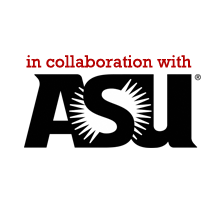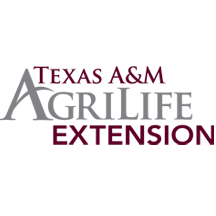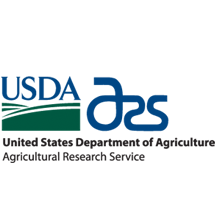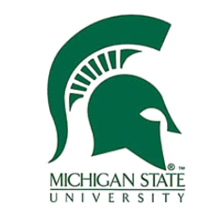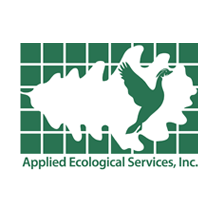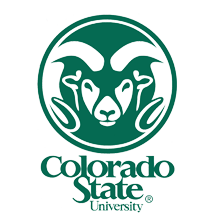AMP Grazing Research Science & Advisory Teams
SCIENCE TEAM
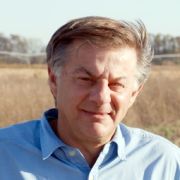
Steve Apfelbaum
Steven I. Apfelbaum: Co-Principal Investigator
Currently: Founder, Chairman, Executive Director & Senior Ecologist, Applied Ecological Services, Inc.
--------
Formerly: Senior Ecologist and Scientist, Chairman of the Board, Applied Ecological Services, Inc.
Since 1978, Steven has led the 130-person firm, Applied Ecological Services, Inc. headquartered in Wisconsin, as a registered senior ecologist with the Ecological Society of America. Under Steven’s leadership, AES, Inc. has become one of the most esteemed firms offering turn-key delivery on thousands of ecological restorations, ecosystem research, and ecosystem service projects recognized for their innovation and success by non-profit conservation organizations, and private and public agency clients. Steven has contributed to the authorship of hundreds of publications, including the books Soil Carbon Management: Environmental, Economic and Societal Benefits (CRC press, 2007); and Natures Second Chance (Beacon Press, Boston) which was recognized as one of the top 10 books on environment and helping citizens learn what they can do about climate risk in 2009. Articles have included “A dirty way to fight climate change” (Christian Science Monitor Op-ed 2008) and the policy proposal for the Obama administration, “A National Strategic Carbon Reserve Plan”, addressing carbon sinks.
Steven’s latest books (Restoring Ecological Health to Your Land, and The Restoring Ecological Health to Your Land Workbook (Island Press) have been praised for being the first “How-to” restoration books for landowners and land managers. Steven is a co-author of the Verified Carbon Standard approved “The Earth Partners Soil Carbon Quantification Method”. He is project director on the Palouse Soil Carbon project, one of the carbon market and ecosystem-scale science demonstration projects funded by USDA-NRCS. Steven holds a research appointment at UW-Stevens Point, and is a Gaylord Nelson Environmental Institute Fellow at University of Wisconsin-Madison. Steven teaches at the Harvard University Graduate School of Design, where he is focused on the future of the earth’s coastal systems. He has received many awards including the Aldo Leopold Foundation’s life time achievement in ecological restoration, and the Ryerson award in conservation. Steven holds undergraduate and graduate degrees from the University of Illinois, Urbana.
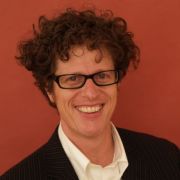
Peter Byck
Peter Byck: Principal Investigator
Currently: Professor of Practice - Arizona State University
--------
Director, Producer & Writer - carbon nation, soil carbon cowboys, Roots So Deep (you can see the devil down there)
Peter Byck is the director, producer and writer of carbon nation. Byck is also Professor of Practice at Arizona State University, in both the School of Sustainability and the Cronkite School of Journalism. Via carbon nation and ASU, Byck has met and collaborated with the leading minds from the world of climate, clean energy, military applications and land use. Byck is currently in production for carbon nation 2.0 - an on-going series of short films produced in collaboration with ASU. He is also working with scientists and ranchers on soil health research - the focus of the 1st cn 2.0 short film soil carbon cowboys. Byck’s public speaking engagements highlight his most unique discovery during the 3-year promotion of carbon nation: liberals and conservatives in the U.S. are not polarized, as the popular press presents. Through Byck’s humor, curious mind and respectful approach, he gets to the core of peoples’ beliefs – listening carefully for common ground. And in the realm of energy, he’s realized that if the subject of climate change is tabled, there is vast agreement on how the country should approach our use of energy: people are chomping at the bit for clean energy and energy efficiency. And, a large portion of Americans are willing to make sacrifices to get us to a low carbon economy – they’re just waiting for someone to lead.
Byck has recently appeared on Real Time with Bill Maher (episode 255) and NPR’s Science Friday. As a public speaker, Byck has presented carbon nation at Google, Facebook, McDonald’s, Boeing, Nike, Microsoft, TetraPak, Shell, Walmart.com, SC Johnson, St. Gobain; House of Commons & U.S. Embassies in London, Berlin and Vienna, various U.S. Consulates in Scotland, Ireland and Germany; Richard Branson’s Carbon War Room, White House CEQ, NetImpact, Urban Land Institute, SXSW ECO, BSR, EcoAmerica Prince Charles’ B.E.P. program @ Cambridge University, Yale, Duke, Arizona State University (many events), Conservation International, & many other universities, companies and conferences across the country and internationally. Byck has over 20 years of experience as a director and editor. His first documentary, Garbage, won the South by Southwest Film Festival, screened in scores of festivals and played at the Museum of Modern Art and Lincoln Center. Byck has directed shows for MTV starring Will Smith, John Travolta, Nicholas Cage, Drew Barrymore, Gwyneth Paltrow & David Duchovny. In addition, he has edited documentaries for Peter Jackson’s Lord of the Rings and King Kong. Byck has edited documentaries and promotional shorts for Warner Bros., Universal Pictures, 20th Century Fox, MTV, Vh1, BBC, Disney and MGM, including The West Wing, The Matrix, Scrubs, er and many more. Byck has a Bachelor of Fine Arts from California Institute of the Arts. He is married with 2 young sons.
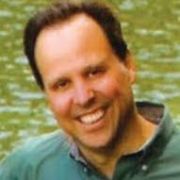
Russ Conser
Russ Conser- Key Project Advisor
Currently: Founder & CEO- Blue Nest Beef
--------
Formerly: Leader- GameChanger Program, Shell Oil (retired)
Russ is co-founder and CEO of Standard Soil, PBC – a grassfed beef production company setting out to put healthy food back on our tables, birds and bees back on our grasslands, and clean water back in our rivers by putting carbon back to work in our soils. Russ recently retired from a 30-year career at Shell where he led the GameChanger program that invested in early-stage energy technology scientists and entrepreneurs in and outside of Shell. Russ was born in Omaha, NE, educated as a Mechanical Engineer (Iowa State ‘83), and practiced as a Petroleum Engineer exploring for and producing oil and gas around the world. For the first half of his career, Russ’ very deep specialty was Petrophysics - the sensors and modeling methods for quantifying and characterizing stores of carbon in the deep earth. Thus in the subject of soil carbon, Russ has literally returned to his roots.
After a mid-career diversion into corporate finance, Russ helped found Shell Technology Ventures and for the next 15 years became solely focused on advanced technology innovation and entrepreneurship. From many years leading GameChanger, Russ has unusually deep and broad experience in emerging energy technology, and is a deep expert in both theory and practice of corporate innovation and venturing. Russ has been a frequently invited speaker, panelist and writer at events related to the future of energy and corporate innovation including the US Department of Energy, US National Intelligence Council, National Petroleum Council, Harvard Kennedy School of Government, TEDx, the Management Innovation Exchange and the Urban Land Institute. Russ stepped beyond Shell in 2013 to join the broader world of revolutionary entrepreneurs focused on the interconnections of energy, water and food. Russ presently sits on the Board of Directors of StarRotor Corporation, the Advisory Board for the AceelerateH2O water- technology accelerator, the Selection Committee for the iSelect Fund, and the Board of Directors of The Grassfed Exchange. Russ and his wife Nancy have three sons and live in Fulshear, TX.
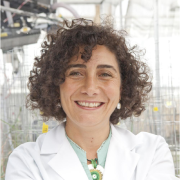
M. Francesca Cotrufo, PhD
M. Francesca Cotrufo- Science Lead - Soil carbon, nitrogen and water
Currently: Professor: Colorado State University
--------
Science Director: Cquester Analytics
Dr. Cotrufo is a professor of soil ecology and biogeochemistry at the department of Soil and Crop Sciences, and senior scientist at the Natural Resource Ecology Lab, at Colorado State University. She earned B.Sc. from the University of Naples, Italy and Ph.D. from Lancaster University, UK. Prior to join CSU in 2008, she worked as a professor of ecology at the Second University of Naples, Italy. Dr. Cotrufo is a soil ecologist with leading experience in the field of litter decomposition and soil organic matter C and N dynamics, and in the use of isotopic methodologies in these studies. Her main research interest is in the understanding of C and N fluxes from plant litter to soil and the atmosphere, and their response and feedback to global environmental changes and disturbances, such as management and fire. She also pursues applied research to propose soil management practices that increase soil quality and fertility and mitigate climate change, as for example the study of biochar in soils. She participated in, and often coordinated, a number of research projects, financed by the European Community, NSF, USDA, DOE and privates. She has long-term experience with mentoring, advising and teaching. She currently teaches several classes both at graduate and undergraduate level in the field of soil ecology, global change and stable isotopes. She is editor of the journal Global Change Biology (IF 8.4). To date (8/2016) she published 85 peer reviewed articles and several book chapters, which received a total of over 5397 citations and have an H factor of 35 (Google scholar).

Evan H. DeLucia, PhD
Evan H. DeLucia, PhD- Science Co-lead: Greenhouse gas emissions
Currently: G. William Arends Professor Emeritus, Plant Biology
--------
Baum Family Director- University of Illinois
Evan H. DeLucia is the G. William Arends Professor of Biology and Baum Family Director at the University of Illinois. He was named Director for the Institute for Sustainability, Energy, and Environment in 2013, and he was appointed Director for the Center for Advanced Biofuel and Bioenergy Innovation in 2017. After completing his B.A. at Bennington College and working as a teaching fellow at Phillips Andover Academy, DeLucia completed a M.F.S. in forest ecology at Yale University and a Ph.D. in plant ecology and physiology at Duke University. He joined the faculty at Illinois in 1986. How the use and management of land affects the climate system, and the responses of forests, grasslands, and agriculture to global change are at the center of DeLucia’s research interests. DeLucia is married to Leslie and they have two sons, Nicholas and Michael, both doctoral candidates at the University of Illinois.
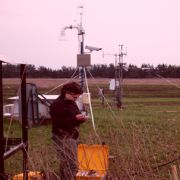
Nuria Gomez-Casanovas, PhD
Nuria Gomez-Casanovas, PhD- Science Co-lead: Greenhouse gas emissions
Currently: Asst. Professor, Regenerative System Ecology at the University of Texas A&M
--------
Formerly: University of Illinois
Nuria is an Assistant Professor, Regenerative System Ecology at the University of Texas A&M. She received her Ph.D. in Biology from the University of Barcelona. Nuria’s research targets important and fundamental questions in the fields of biogeochemistry and agroecology to improve the sustainability of agroecosystems and managed systems. She is also interested in improving understanding of how changes in the environment affect terrestrial ecosystems, and how ecosystems affect the environment. To answer these questions, she uses empirical, modeling and synthesis approaches and integrates knowledge across disciplines (plant and soil sciences, ecology, agronomy and environmental sciences). Her research uses a variety of tools including plant, soil and ecosystem methods (stable isotopes, canopy and soil chambers, eddy covariance methods) to measure an array of processes across multiple temporal (past, present and future) and spatial (local, regional, global) scales.
With colleagues at the University of Illinois, she is currently investigating how manipulating fire and grazing affects the environmental and economic sustainability of subtropical pastures used for beef cattle production. The insights gained from this research are vital to understand how to optimize food production of US agricultural systems and predictions of how grazing lands will respond in the future.
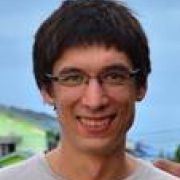
Tim Hill, PhD
Tim Hill, PhD- Scientist: Greenhouse gas emissions
Currently: Ecosystem Scientist- University of Exeter
Tim Hill is ecosystem scientist based in the University of Exeter’s Geography department. He is interested in the how our changing use of the planet is altering the functioning of the terrestrial biosphere and its interactions with the atmosphere. The ecosystems Tim studies include: agricultural systems, drylands, saltmarshes, temperate peatlands, tropical forests and tropical peat systems (including oil palm plantations) with a research focus on stocks and fluxes of carbon, energy and water.
His research employs field measurements, remote sensing and models. Increasingly, Tim’s attempts to answer key research questions has led him to develop custom eddy covariance systems. These new systems either expand the range of greenhouse gases measured, or to reduce instrumentation costs to facilitate true spatial replication using eddy covariance.
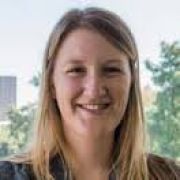
Jennifer Hodbod, PhD
Jennifer Hodbod, PhD- Science Lead: Rancher Well-Being
Currently: Social Scientist- University of Leeds
--------
Formerly: Michigan State University
The over-riding theme of Jennifer Hodbod’s research program is ‘how do we create resilient food systems?’ – environmentally and economically sustainable food systems that can equitably feed a growing global population whilst adapting to security threats such as climate change, changing preferences and economic shocks. I practice applied research in order to test and disseminate potential solutions in food systems. To integrate these components Jennifer utilizes environmental social science methods within a novel and integrative research design for investigating human-environment interactions – resilience assessment. By taking a social-ecological systems perspective she can investigate impacts across multiple scales, to highlight all impacts – intended or not – for all actors.
Jennifer completed her PhD at the University of East Anglia (UK) in 2013, within the Tyndall Centre for Climate Change Research. Her PhD research examined the impacts of biofuel expansion on social- ecological systems in Ethiopia, investigating the consequences at different scales on food security, livelihoods, the environment and energy security using interdisciplinary methods. She is now a Postdoctoral Research Fellow in the Walton Sustainability Solutions Initiative. Whilst at ASU she has initiated projects that study the impacts of urban agriculture projects in Phoenix on resilience at multiple scales, agricultural development in Ethiopia, and Adaptive Multi-Paddock (AMP) grazing – high intensity, short duration grazing – and its impact on the resilience of rangelands as well as its scalability. Collaborators include members of key research and engagement organizations - academics from multiple disciplines and universities, local and national governments, NGOs, and smallholder and commercial producers. Her novel framing of food systems through a resilience lens has resulted in multiple contributions to both disciplines.
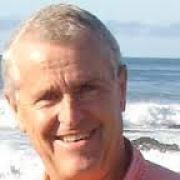
David Johnson, PhD
David C. Johnson, PhD- Science Co-lead: Soil Microbiology
Formerly: Molecular Biologist- New Mexico State University (Retired)
Dr. Johnson researches metagenomic and metatranscriptomic analyses of microbial community structures in natural and agroecosystems. He is a molecular biologist, at New Mexico State University, currently conducting research in soil microbial community structures and functions exploring the interactions and interdependence between plants and soil microbes towards improving: plant carbon capture efficiencies, system water use efficiencies, soil microbe carbon-use-efficiencies towards increasing the duration of carbon placed into the soils of agroecosystems. This research is aimed at developing practical and easily- adoptable mechanisms to significantly reduce greenhouse gases while promoting sustainable agro- ecosystems.
Dr. Johnson is Director of the Institute for Sustainable Agricultural Research at NMSU currently working with farming/ranching professionals; New Mexico Environmental Department, Air Quality Division; USDA/Natural Resources Conservation Service; Los Alamos and Sandia National Laboratories; Texas A&M, Arizona State University, and the Thornburg Foundation exploring paths to reduce atmospheric carbon dioxide concentrations, improve food security and increase farm and rangeland productivity through the development of beneficial soil microbial community structures. Dr. Johnson is also currently a Senior Program Specialist and an Adjunct Instructor at the Institute for Energy and Environment in the NMSU College of Engineering, facilitating research, pilot project development and student mentoring in fields ranging from: bio-hydrogen and bio-methane generation, abandoned mine closures, advance oxidation processes for water clean-up at super-fund sites, reverse-osmosis and electro- dialysis water desalination, microbial-fuel cell desalination processes and algal bio-fuel production.
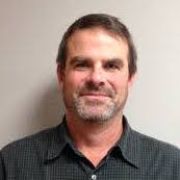
R. Michael Lehman, PhD
R. Michael Lehman, PhD- Science Co-lead: Soil Microbiology
Currently: Soil Microbiologist- USDA-Agricultural Research Service, North Central Agricultural Research Laboratory
Dr. Michael Lehman is a soil microbiologist with the USDA-Agricultural Research Service, North Central Agricultural Research Laboratory in Brookings, SD. Since 2004, he has researched interactions between soil microbes and various crop and soil management strategies, including crop residues, extended crop rotations, cover crops, and no-till soil management. Lehman is an adjunct graduate faculty in Plant Science at South Dakota State University where he has advised and served on graduate committees for four M.S. students. Lehman has mentored and supported with extramural funds two postdoctoral research associates over the past six years.
Prior to employment with the USDA-ARS, Lehman spent 13 years at the Idaho National Laboratory (USDOE) in Idaho Falls researching fundamental aspects of environmental microorganisms and their interaction with contaminants. Lehman was adjunct graduate faculty at Idaho State University and was the thesis advisor for PhD. and M.S. graduates. Lehman received a B.A. from the University of Colorado, an M.S. from University of Virginia, and a PhD. from Idaho State University. Lehman has performed peer reviews for over 30 refereed journals and multiple grant application programs within the USDA and DOE. Lehman serves on the editorial board of PLOS ONE and Agricultural and Environmental Letters. He serves on the advisory board for the South Dakota Sustainable Agriculture Research and Education (SARE) program. Lehman has given over 40 invited presentations on the role of soil microorganisms in maintaining soil health and function and serves as an advisor to the Soil Health Institute. He has authored or co-authored 80 publications: 52 peer-reviewed journal articles, 2 patents, 25 reports or proceedings, 1 book chapter; and, over 100 published abstracts.
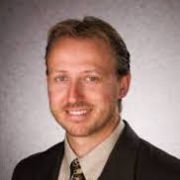
Jonathan Lundgren, PhD
Jonathan Lundgren, PhD- Science Lead: Arthropods
Currently: Agroecologist; Director- ECDYSIS Foundation; CEO- Blue Dasher Farm
Dr. Lundgren is an agroecologist, Director ECDYSIS Foundation, and CEO for Blue Dasher Farm. He received his PhD in Entomology from the University of Illinois in 2004, and was a top scientist with USDA- ARS for 11 years. Lundgren received the Presidential Early Career Award for Science and Engineering (the highest honor given to young scientists by the Office of the President), the Rothbart Early Career Scientist for USDA-ARS, and received the Early Career Innovation Award from the Entomological Society of America. Lundgren has served as Panel Manager for NIFA’s Biotechnology Risk Assessment Grants Program for two years and on the EPA’s and EFSA’s scientific advisory panels to assess the safety of RNAi-based pesticides.
Lundgren is actively involved in the Entomological Society of America, and is past President for the International Organization for Biological Control (Nearctic Regional Section). He is an editor for Environmental Entomology, and formally for Arthropod-Plant Interactions, and has reviewed manuscripts for more than 50 scientific journals. He was a visiting scientist at CABI in Delemont Switzerland, and with CIAT in Cali Colombia. Lundgren has written 107 peer-review journal articles, authored the book Relationships of Natural Enemies and Non-prey Foods (Springer Publishers), co-edited the Biological Control special issue Trophic Ecology of the Coccinellidae, and has received more than $3.4 million in extramural grant funds. One of his priorities is to make science applicable to end-users, and he regularly interacts with the public and farmers regarding pest management and insect biology. He has trained 5 post-docs and 12 graduate students from around the world. Lundgren’s research program focuses on assessing the ecological risk of pest management strategies and developing long-term solutions for sustainable food systems. His ecological research focuses heavily on conserving healthy biological communities within agroecosystems by reducing disturbance and increasing biodiversity within cropland.
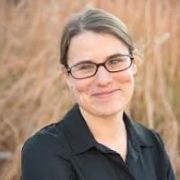
Samantha Mosier, PhD
Samantha Mosier, PhD- Scientist: Soil carbon, nitrogen and water
Currently: Executive Director- Cquester Analytics
--------
Formerly: Postdoctoral Research Associate- Colorado State University, Michigan State
Dr. Mosier is a postdoctoral research associate at the Great Lakes Bioenergy Research Center at Michigan State University’s W.K. Kellogg Biological Station. She earned a B.S. in environmental science from The University of Michigan, a M.S. in applied ecology from Michigan Technological University, and Ph.D. in ecology from Colorado State University.
Her doctoral research investigated different mechanisms and management practices for soil carbon sequestration, including analyzing the impact of grazing management on soil carbon and nitrogen stocks as well as other soil health indicators.
Overall she researches sustainable land use strategies that can help mitigate climate change by analyzing soil biogeochemistry in relation to different management practices, such as in bioenergy cropping systems and grazed grassland ecosystems.
Additionally, she uses stable isotopes and soil organic matter fractionation to understand the stabilization and decomposition of soil organic matter.
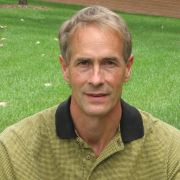
Keith Paustian, PhD
Keith Paustian, PhD- Soil and Crop Sciences, Modeling
Currently: Colorado State University
Dr. Paustian is Professor in the Department of Soil and Crop Sciences and Senior Research Scientist at the Natural Resource Ecology Laboratory at Colorado State University. A major focus of his work involves modeling, field measurement and development of assessment tools for soil carbon sequestration and greenhouse gas emissions from soils. He has published over 240 journal articles and book chapters. Previous and current research activities include development models and inventory methodology used to estimate US soil C and N2O emissions that are reported annually by EPA to the UNFCCC; development of a web-based tool (COMET-FarmTM) for estimating on-farm greenhouse gas (GHG) emissions and carbon sequestration used by USDA (http://cometfarm.nrel.colostate.edu/) and project-scale systems for GHG assessment of sustainable land management projects in developing countries (http://www.unep.org/cbp_pim/). He also serves as project director for the Bioenergy Alliance Network of the Rockies (BANR - http://banr.nrel.colostate.edu/) which is a consortium of universities, industry and the US Forest Service, researching the potential for sustainable bioenergy production from beetle-kill trees and forest residues. Professional service activities include Coordinating Lead Author for the IPCC 2006 National Greenhouse Gas Inventory Methods and the IPCC 2003 Good Practice Guidance for LULUCF, a 2010 National Academy of Science panel evaluating greenhouse gas measurement methods and verification issues, and member of the US Carbon Cycle Science Steering Group, which provides expert input to Federal Agencies involved in climate and carbon cycle research. He also served on the Voluntary Carbon Standard Steering Committee for Agriculture, Forestry and Other Land Use (AFOLU) and on numerous other national and international committees involving climate and carbon cycle research. He is a Fellow of the Soil Science Society of America and 2015 recipient of the Soil Science Society of America’s Outstanding Research Award.
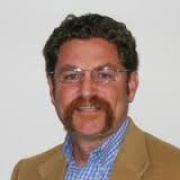
Jason Rowntree, PhD
Jason Rowntree, PhD: Co-Principal Investigator
Currently: Faculty Coordinator for two research facilities at Michigan State University
Dr. Jason Rowntree is currently the faculty coordinator for two research facilities at Michigan State University, The Lake City Research and Upper Peninsula Research and Extension Centers. His current research and outreach is focused on applying holistic management principles to agricultural settings.
Beef Cattle and Forage Utilization
Specifically, Dr. Rowntree has three primary areas of research and outreach interest: 1) improving energy efficiency at the farm level through properly managed grazing and integrated cropping systems; 2) understanding the impact of grazing systems on GHG flux and 3) development of pasture-based local beef production systems. He is currently developing a genetic beef cattle base using Red Angus across the two research facilities to provide grass finishing genetics to the upper Midwest. In the first two years they have marketed over 200 head of beef cattle into grass finishing markets. He also recently developed a local beef model on Michigan State University campus that sources 60% of the total needed beef from campus sources. Jason is active with intercollegiate livestock judging activities serving as a beef superintendent for the National Livestock Judging Contest. He has judged livestock shows nationally and in Canada for over 20 years. Jason and his wife Cara have three children. They have a small 10 ac farm that allows for his family to raise grass finished beef, pastured poultry and eggs for their friends and church family. As a family they homeschool, are active in the local 4H community and his three kids actively show swine and goats at state and regional shows.
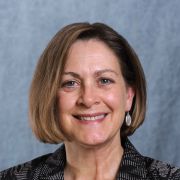
Janice Swanson, PhD
Janice Swanson, PhD: Co-Principal Investigator
Currently: Professor and Chair- Department of Animal Science, Michigan State University (MSU)
Dr. Janice Swanson is professor and chair of the Department of Animal Science at Michigan State University (MSU). She received her PhD from the University of Maryland in Applied Ethology in 1988, and a masters and baccalaureate degree in animal science from the University of Connecticut. Dr. Swanson’s professional career includes five years as a technical information specialist in the U.S. Department of Agriculture’s Animal Welfare Information Center and 15 years as a faculty in the Department of Animal Science and Industry at Kansas State University (KSU, 1992-2007). At KSU, Dr. Swanson taught courses in animal behavior and welfare, conducted outreach, was a member of the graduate faculty, served as director of the department’s international program, and as the interim department head (2005-2007).
Animal Well-being
In 2007 Dr. Swanson assumed the position of professor and Director of Animal Welfare at MSU as a joint appointment in the Departments of Animal Science in the College of Agriculture and Natural Resources and Large Animal Clinical Sciences in the College of Veterinary Medicine. Dr. Swanson coordinates outreach, teaching and research in the area of animal welfare with a focus on social responsibility in the food system. She is a member of the MSU Animal Behavior and Welfare Group and has been serving as the chair of the Department of Animal Science since 2010. In addition to her administrative and academic responsibilities in teaching, research and extension, Dr. Swanson has provided scientific service to government, industry and scientific animal welfare advisory committees including: the United Egg Producers, McDonalds, Food Marketing Institute, Bob Evans, Darden, Leprino Foods and Tysons. She was co-chair of the scientific revision leading to the third edition of the Federation of Animal Science Societies Guide for the Care and Use of Agricultural Animals in Research and Teaching, chairs the taskforce charged with the annual review and revision of the Michigan Generally Accepted Agricultural and Management Practices for the Care of Farm Animals administered under the Michigan Right to Farm Act, and recently served as the scientific co-director of the Coalition for Sustainable Egg Supply Project.
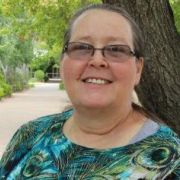
Wendy Taheri, PhD
Wendy Taheri, PhD: Fungi Specialist
A specialist in arbuscular mycorrhizal fungi (AMF), Dr. Taheri has a PhD in Ecology and Evolutionary Biology from Indiana University. While there, she studied under Jim Bever, one of the top scientists in the field of AMF. Her research demonstrated that selection for the right AMF communities could increase plant biomass as much as 69%. This earned her first research paper a press release. Realizing the tremendous benefits these organisms could bring to agriculture she accepted employment with the USDA which allowed her to study the impact of agricultural practices on these vital members of the soil community. After two consecutive contracts with the USDA she recently went on to found her own company, TerraNimbus, LLC. She is currently pursuing independent research and overseeing development of biological products that help jump-start the restoration of degraded farmland.
Dr. Taheri has a special interest in helping solve broad scale ecological problems. This has led her to examine the role of AMF in phosphorus conservation, sustainable farming, and carbon sequestration. Outreach to farmers and crop consultants is an important part of her activities. Her work has been featured in John Deere’s Furrow, The Farm Journal, Acres USA, Corn & Soybean, Successful Farming and other farm journals that emphasize soil health and sustainable agriculture.
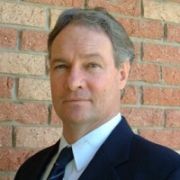
Richard Teague, PhD
Richard Teague, PhD: Co-Principal investigator
Currently: Associate Resident Director- Texas A&M AgriLife Research
Richard Teague is Associate Resident Director of Texas A&M AgriLife Research in Vernon, Texas, Professor in the Department of Ecosystem Science and Management at Texas A&M University and Senior Scientist at the Norman Borlaug Institute for International Agriculture. He was raised in a farm community and schooled in Zimbabwe before obtaining a BSc (Agriculture) in grassland science (1972) at Natal University in Pietermaritzburg, South Africa, and a PhD in botany and microbiology (1987) at the University of the Witwatersrand in Johannesburg, South Africa.
Rangeland Ecologist
As a research scientist working on the management of rangelands since 1972, he has visited most grazing areas of the world, attending conferences and presenting research results. He has visited leading conservation ranchers in Zimbabwe, South Africa, Namibia, Australia, New Zealand, Argentina, Chile, Canada and most of the western rangeland states in USA to determine how they have produced superior results. He is intimately aware of the research that has been done on grazing management in most parts of the world and has been conducting research in Texas since 1991. His research concentrates on conducting ranch-scale, multi-county assessments that address three related objectives in the context of the Climate Change Mitigation and Adaptation: 1) Determine the extent that grazing strategies influence key ecosystem services (especially soil and vegetation carbon sequestration), soil fertility and stability, water quality, net primary and secondary production, and the economic viability of working ranches that contribute to the retention of open space and rural community health in the Southern Plains of the USA; 2) Determine the extent that different grazing management strategies can be used by livestock producers to mitigate and adapt to alternative climate change scenarios; and 3) Evaluate the long-term economic consequences of using alternative grazing management strategies to achieve rangeland restoration and production goals. In 2013 he and co-authors received the award for top technical paper by Texas Society for Range Management titled “Why the perceptual dichotomy between research results and rancher experience? Journal of Environmental Management 128, 699-717”.
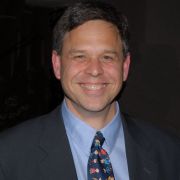
Greg Thoma, PhD
Greg Thoma, Ph.D.- Science Lead: Life Cycle Analysis
Currently: Bates Teaching Professor of Chemical Engineering- University of Arkansas
Greg Thoma, Ph.D. is the Bates Teaching Professor of Chemical Engineering at the University of Arkansas and served as inaugural Director for Research and is now an advisor to The Sustainability Consortium. He has led numerous food and agriculture life cycle assessment projects: milk, cheese, milk delivery systems, yogurt, swine, poultry, corn, and beef. He serves on the steering committee for the Swiss National Research Program, “Healthy Nutrition and Sustainable Food Production.” He is the North American subject editor for Agriculture for the International Journal of Lifecycle Assessment. He has been active with the Livestock Environmental Assessment and Performance (LEAP) Partnership since its inception acting as the Technical Advisory Group Lead/Co-lead for development of the poultry, swine, and large ruminants’ guidelines.

Allen Williams, PhD
Allen Williams, PhD: Co- Investigator
Currently: Pres., CEO- Grass Fed Beef, LLC & Grass Fed Insights, LLC
--------
Formerly: Faculty, Miss St. Uni
Allen Williams is a 6th generation family farmer (since 1840) and founding partner of Grass Fed Beef, LLC, Grass Fed Insights, LLC, a partner in Joyce Farms, Inc., and a team member in Solutions in The Land, LLC. He has consulted with more than 3500 farmers and ranchers in the U.S., Canada, Mexico, and South America on operations ranging from a few acres to over 1 million acres. Allen pioneered many of the early grassfed protocols and forage finishing techniques and has spent the last 15 years refining those. He is a “recovering academic”, having served 15 years on the faculty at Louisiana Tech University and Mississippi State University. He holds a B.S. and M.S. in Animal Science from Clemson University and a PhD. in Genetics & Reproductive Physiology from LSU. He has authored more than 400 scientific and popular press articles, and is an invited speaker at regional, national, and international conferences and symposia. Major areas of research focus include soil health, forage & grazing management systems, live animal carcass ultrasound, reproductive technologies, Meat Science, and alternative marketing systems. Allen and his colleagues specialize in whole farm & ranch planning based on the concept of regenerative agriculture. Their approach creates significant “value add” and prepares the landowner for multiple enterprise/revenue stream opportunities that stack enterprises and acres. This approach allows for enhanced profitability and/or investment value.
He is featured in the carbon nation film, soil carbon cowboys (http://vimeo.com/80518559) and has a recently released book co-authored with Teddy Gentry, Before You Have A Cow. Allen is a regular contributor to GRAZE and has written articles for the Organic Broadcaster, Stockman GrassFarmer, and many other publications. He currently serves on the Board of Directors of the Grass Fed Exchange and the Mississippi Sustainable Agriculture Network, Core Team Member of the Pasture Project, and Co- Investigator for Team SoilCarbon. He also serves as an officer in the Starkville Civitan Club and is active in his local church.
SCIENCE ADVISORS
Phil Christensen, PhD
Christian Davies, PhD
Gary Dirks, PhD
Jay Fuhrer
Cropping and grazing systems (resigned)
Jerry Hatfield, PhD
Lab Director (resigned)
Tony Michaels, PhD
Sian Mooney, PhD
Dean, Paul H. O’Neill School of Public and Environmental Affairs
Rebecca Ryals, PhD
Charlie Walthall, PhD
Climate Change, soils & emissions (resigned)
